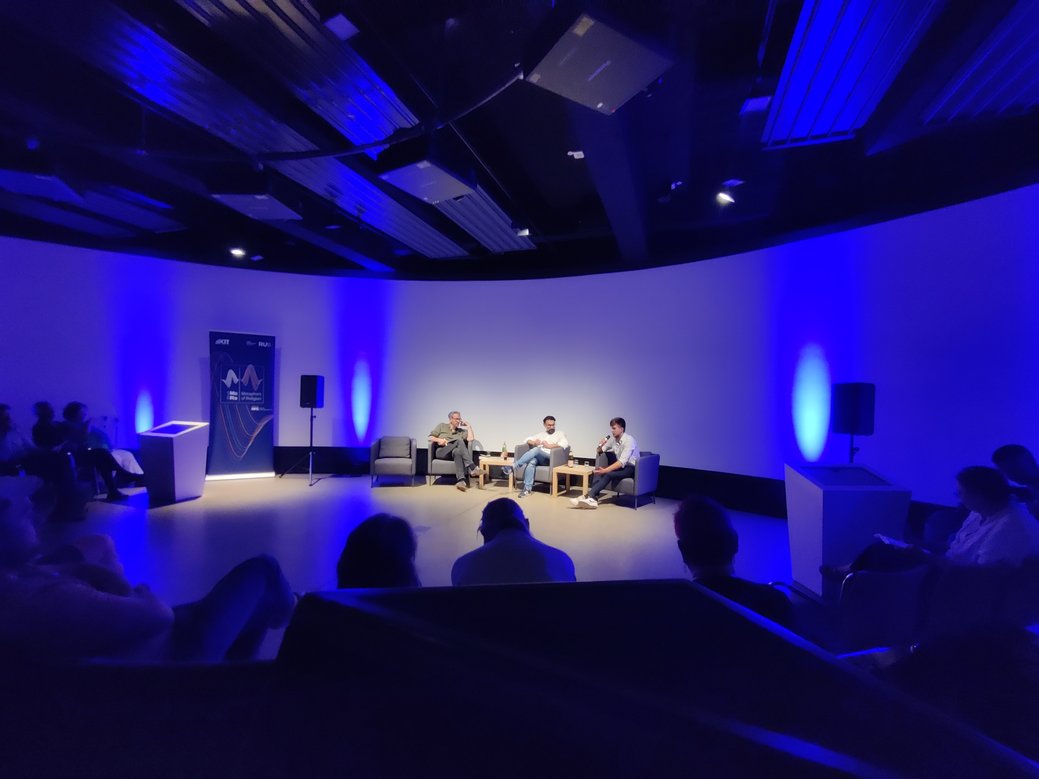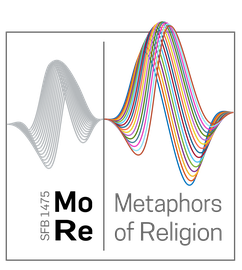
Ali Fathollah-Nejad and Max Lucks in conversation about “Woman, Life, Freedom” – Three Years Later
The event was organized by SFB 1475 “Metaphors of Religion” and the Center for Religious Studies (CERES) in cooperation with the Bochum Adult Education Center (VHS Bochum). It was strongly influenced by the current armed conflict between Israel and Iran and aimed to reflect appropriately on what is for many a stressful and very dynamic situation.
Originally, in addition to political scientist Dr. Ali Fathollah-Nejad and Member of the Bundestag Max Lucks (Alliance 90/The Greens), a contribution by scientist and actress Maryam Palizban was also planned. However, she had to cancel at short notice for personal reasons against the backdrop of the current armed conflict.
In the first part of the evening, Ali Fathollah-Nejad spoke with moderator Dr. Tim Karis (CERES, Ruhr University Bochum) about the current situation in Iran, with a particular focus on the domestic political perspective. He analyzed the dynamics of the protest movement, the regime's reactions, and the structural tensions within Iranian society. He also presented his book “Iran: How the West Betrays Its Values and Interests” (Aufbau Verlag), published in November 2024. In it, he criticizes Western policy toward Iran as contradictory and characterized by strategic opportunism. During the discussion, he emphasized that a value-based foreign policy is not only morally imperative, but also makes sense in terms of long-term security policy.
In the second part of the event, Max Lucks contributed a foreign policy perspective. He advocated a clear stance by Germany and Europe toward repression in Iran and warned against placing economic or geopolitical interests above human rights. Lucks called for targeted sanctions against those responsible in the Iranian power apparatus and for stronger support for the diaspora and civil society initiatives.
The subsequent open discussion with the audience was lively and engaging. Questions were asked about both the feasibility of realpolitik and the ethical responsibility of the West. The event impressively demonstrated how much the topic continues to stir emotions and that there is great interest in well-founded information and critical exchange. The evening ended with the shared impression that the protest movement in Iran—despite repression and setbacks—is an expression of profound social change. How this change will continue to unfold in light of the acute situation had to remain open on this evening.

